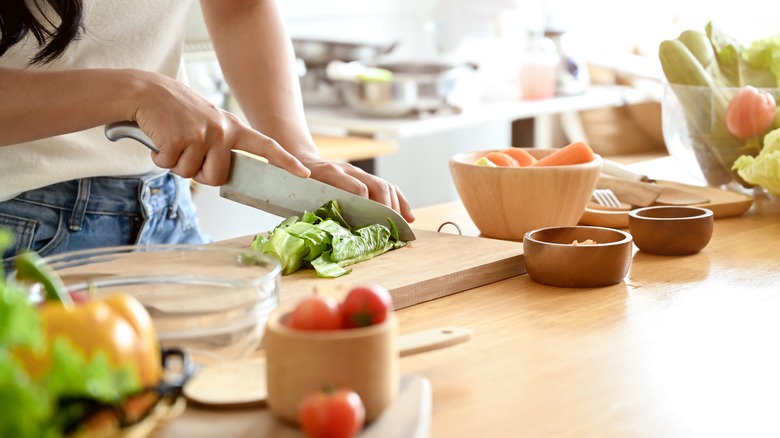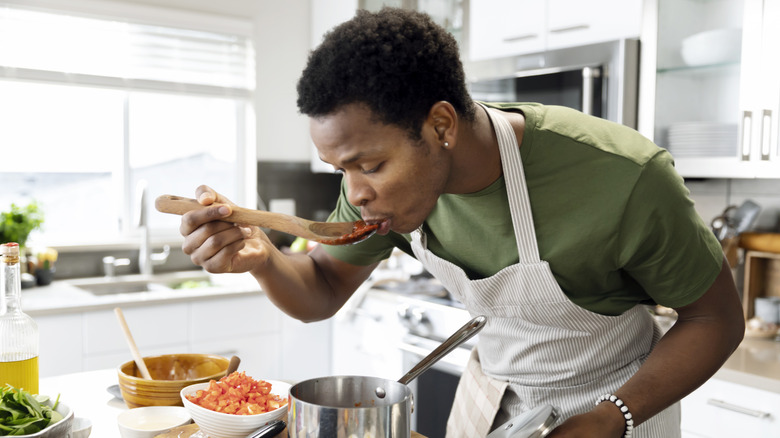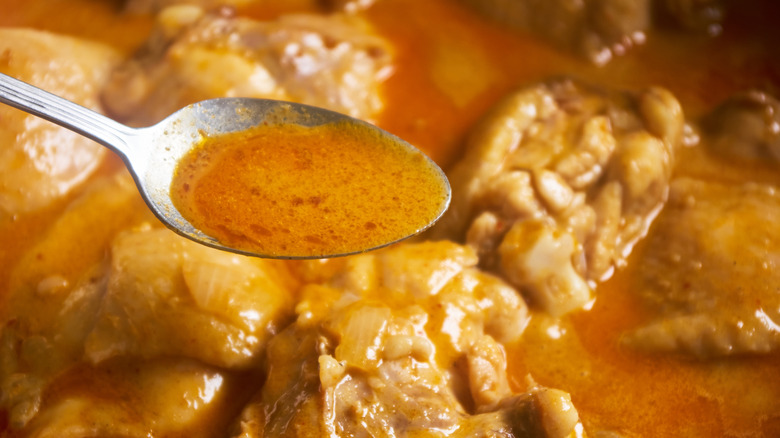The Tried And True Cooking Advice Every Novice Needs To Know
There's never been a better time in history to learn how to cook — thanks to YouTube, social media, millions of cookbooks, TV shows, and celebrity chefs. But that doesn't mean it won't feel a little intimidating at first. Whether you're inspired to spend some time in the kitchen by watching "The Bear," or you've been flipping through a box of old family recipes, there is one piece of advice that every novice needs to know no matter what cuisine you decide to tackle: taste as you go.
Ask any chef and they'll tell you that good food doesn't happen by simply assembling a recipe. A good cook has to know what each component tastes like, and then they balance and season flavors throughout the cooking process, whether it's a simple bowl of soup or a complicated croquembouche. When you taste as you go, not only will you learn how to build flavor, but you'll also never have to scramble at the end of a recipe to wonder what went wrong when it doesn't taste quite right.
Taste all your ingredients
If you've decided to tackle your first batch of all-American chili or a comforting casserole, don't rush through it only to taste the food at the very end. It's easy to get caught up in a recipe, and while you're nervously measuring out all the ingredients and re-reading instructions over and over, you're not paying attention to the actual components of the food. Slow down and taste as many of the ingredients as you can before mixing things together so that you build up an understanding of what food tastes like in its individual parts. Think of it as building up a flavor library in your mind.
While there will be some components that you won't be able to taste until they're cooked, like raw meat and eggs, pasta, or dried grains, you can absolutely try a taste of dried spices, raw vegetables, and even cooking stocks or broths before you use them in a recipe. Take a mental note of what you find. Sometimes canned sauces and produce can be salty, for example, which is important to know before you add any other ingredients to the mix.
Taste after each step of a recipe
Once you have built your mise en place — that is, gathered all the ingredients and tools you need for a recipe, and read your recipe backwards and forwards, it's important to keep tasting the dish itself while you're cooking. Whenever you add an ingredient or reach the next step, it's a good time to sneak a bite to see if you're on the right track. It's better to find out that your pasta isn't salty enough before it goes into the sauce than after, for example, because it'll be easier to fix in the moment. It's also key to taste your food before you add anything else to the pot. If the dish is already a little too salty or spicy, you don't want to keep adding things until you rebalance those flavors.
As you get more comfortable with cooking, tasting as you go will become second nature. You'll become more naturally curious about how the food is coming along, and you'll never be surprised by the final results. Plus, it's fun to taste! Keep a few trusty tasting spoons handy throughout the process, and you'll be well on your way to becoming a better cook.


